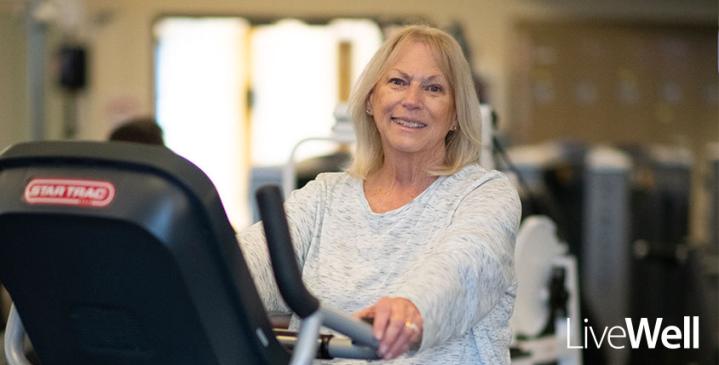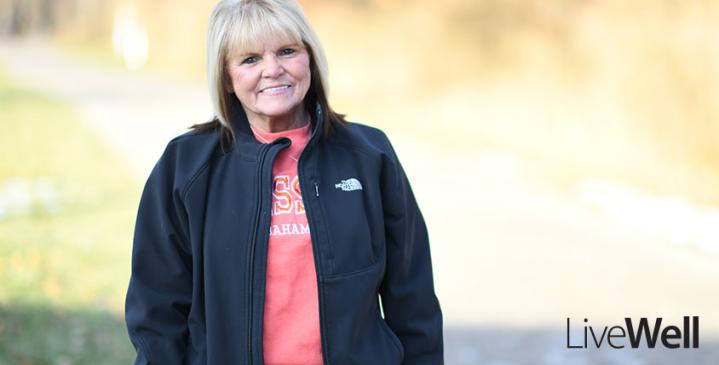
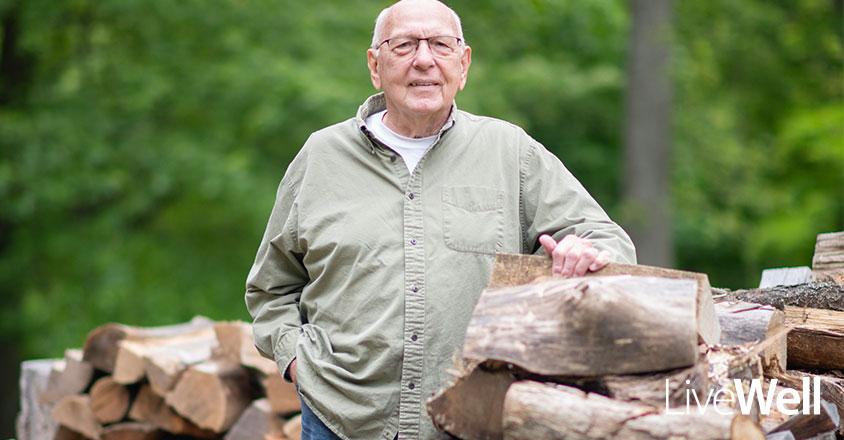
Better begins at 80
-
Monday, July 21, 2025
- |
Jack Fitch has lived a full life. A good life.
As he aged, he started to slow down. He couldn’t do as much as he used to, which he expected. After all, he is 80 years old.
However, over time, his health declined to a point where he couldn’t walk upstairs without being winded. He started having balance problems and coughing.
Regardless of his age, Jack wanted to feel better. He wanted to do more things. He wanted to live life on his terms.
Jack took action
Determined to get better, Jack visited his primary care doctor, who referred him to the Genesis Heart & Vascular Institute. Jack then met Trevor Ellison, M.D., Ph.D., MBA, Fellowship-trained and Board-certified Cardiothoracic Surgeon and Medical Director of Cardiothoracic Surgery at the Genesis Heart & Vascular Institute. He also met Shaun Bhatty, M.D., Fellowship-trained and Board-certified Electrophysiologist at the Genesis Heart &Vascular Institute.
An MRI and EKG revealed that one of Jack’s heart valves was not opening and closing completely. It also showed he had atrial fibrillation (AFib), which is an arrhythmia or abnormal heartbeat. These conditions were causing Jack’s trouble breathing, unsteadiness and coughing.
“After the diagnosis, Dr. Ellison and Dr. Bhatty shared treatment options,” said Jack. “They gave me information that I read and considered. We were talking about my heart, so I was only going to make an informed decision.”
Jack decided to move forward with transcatheter aortic valve replacement (TAVR) to replace his heart valve, which was not working correctly.
The procedure was performed in early September 2024 by Dr. Ellison, Kinan Kassar, M.D., Fellowship-trained and Board-certified Interventional and Structural Cardiologist and the Structural Heart Team at the Genesis Heart & Vascular Institute.
“TAVR is a minimally invasive alternative to open heart surgery,” said Dr. Ellison. “We placed several catheters (small tubes) in his groins and then maneuvered a new, bioprosthetic aortic valve from there. It was then placed inside his deteriorated aortic valve and expanded, leaving him with a new, well-functioning aortic valve.”
Jack quickly recovered and two months later underwent a minimally invasive ablation for AFib.
“Similar to TAVR, we use a catheter inserted through the groin that we direct to the heart,” said Dr. Bhatty. “However, instead of maneuvering a valve, we send radio waves through the catheter to create small scars in the heart to stop the signals that cause AFib.”
During the procedure, Dr. Bhatty also performed a second minimally invasive procedure. He implanted a small device in the heart to block a part of the heart called the left atrial appendage (LAA), where blood clots form in people with AFib. This helps lower the risk of strokes and may reduce the need for long-term blood thinners.
“Soon after the procedures, I felt great,” said Jack. “I’m so glad I chose Genesis. I can also do my routine bloodwork at the Genesis Coshocton Medical Center, which is only five minutes from home.”
“After the diagnosis, Dr. Ellison and Dr. Bhatty shared treatment options. They gave me information that I read and considered. We were talking about my heart, so I was only going to make an informed decision.” - Jack Fitch
Jack is living his best life
Jack expressed his gratitude for the follow-up care after his procedures. While recovering, he was asked to wear a heart monitor for one month. One day, Jack’s wife, Dawn, received a call from Genesis.
“Genesis called concerned because they could see Jack’s heart racing through the monitor,” said Dawn. “They wanted to know if he was okay. I told them he was outside stacking firewood, which accounted for his higher heart rate. It made us feel good for choosing Genesis all over again. First, they did a great job treating him and then continued to monitor and react quickly when something could have been wrong.”
Jack might be 80, but after seeking treatment, he is back to doing the things he enjoys. He spends his days with his wife and taking care of home and property.
Life after TAVR
Jack Fitch quickly returned to his active lifestyle after his transcatheter aortic valve replacement (TAVR) in September 2024.
Aortic stenosis is the narrowing of the aortic valve, slowing blood flow from the heart to the rest of the body. The minimally invasive TAVR procedure uses tiny, flexible tubes to enter the groin and reach the heart. A new valve is placed, leaving no scarring or pain.
Most TAVR patients return home within 48 hours. Ask your doctor about the best day-to-day recovery plan, which includes supervised cardiac rehab. Eating a healthy diet of fruits and vegetables, whole grains, skinless poultry and fish, fat-free or low-fat dairy products and nuts is also important.
Follow-up care includes visits with your doctor and yearly checkups. Patients often return to their routine within a month, compared to up to 8 weeks for open-heart surgery.
Jack’s quick recovery allowed him to enjoy his hobbies without feeling out of breath. He was happy to get back to taking care of his home, doing yardwork and stacking firewood.
A non-invasive, painless test can check for aortic stenosis. Talk to your doctor if you’re experiencing these symptoms:
• Chest pain
• Fast heartbeat
• Shortness of breath
• Feeling dizzy
• Trouble walking short distances
• Decline in routine
• Feeling very tired
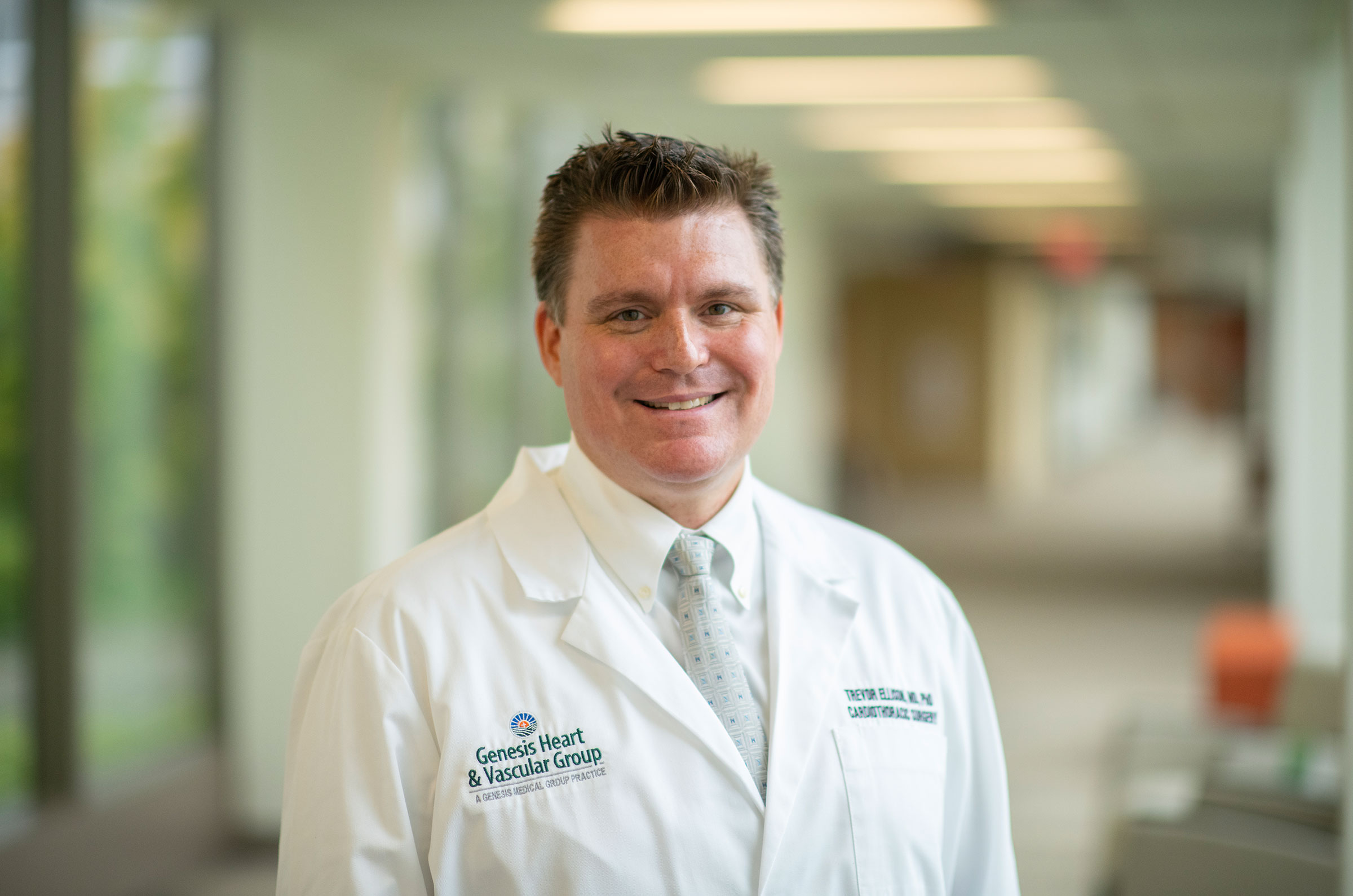
Trevor Ellison, M.D., Ph.D., MBA
- Fellowship-trained and Board-certified Cardiothoracic Surgeon
- Medical Director of Cardiothoracic Surgery
- Genesis Heart & Vascular Institute
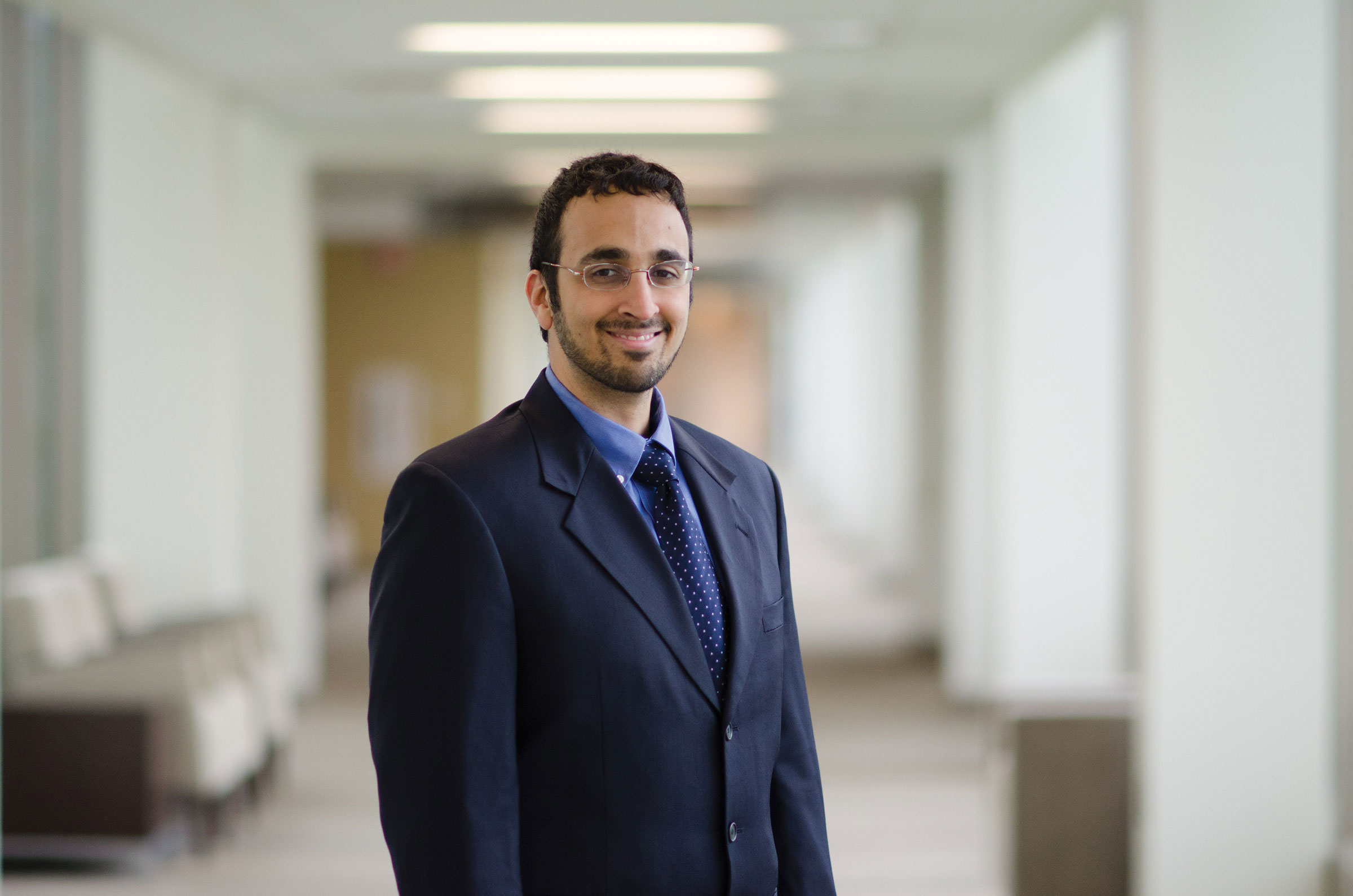
Shaun Bhatty, M.D.
- Fellowship-trained and Board-certified
- Clinical Cardiac Electrophysiologist
- Genesis Heart & Vascular Institute
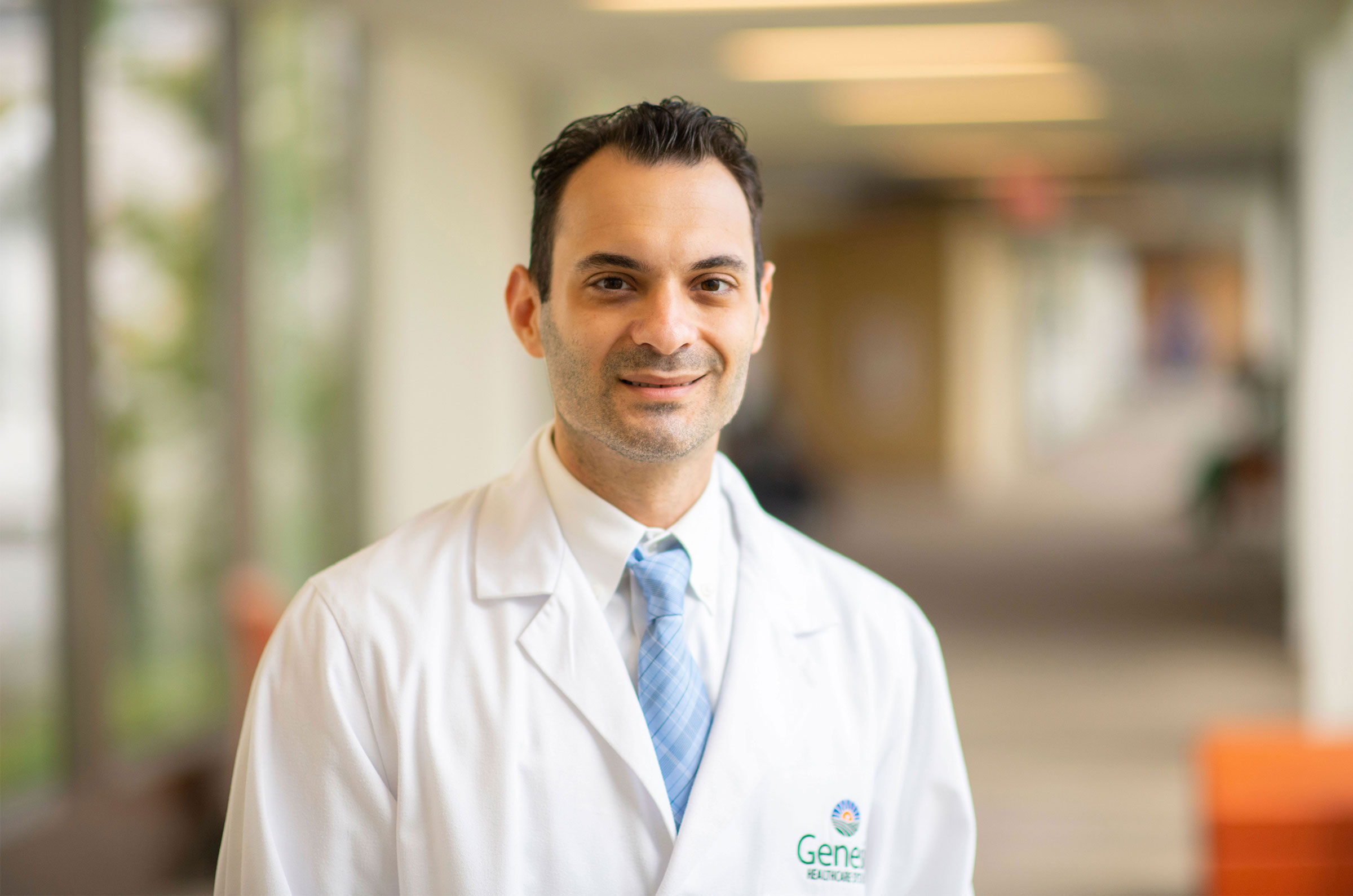
Kinan Kassar, M.D.
- Fellowship-trained and Board-certified
- Interventional and Structural Cardiologist
- Genesis Heart & Vascular Institute

